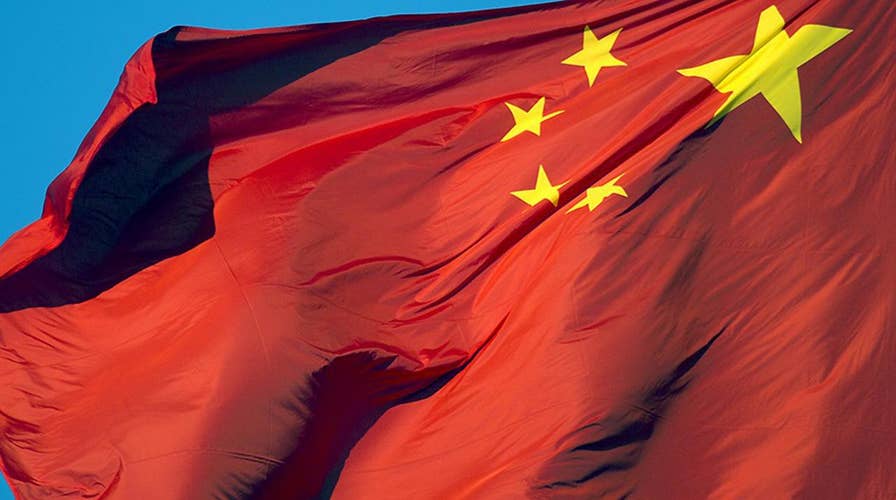What can the US do to counter China's economic threat?
President Trump weighing higher tariffs on Chinese goods.
Our primary adversary in the world – an expansionist, nuclear-armed rival – is trying to change the outcome of American elections. The evidence is substantial and indisputable. It’s in the news every day. What’s missing is the outrage.
No, I’m not talking about Russia. I’m talking about China.
And I’m not talking about fake social media campaigns, foreigners holding private meetings with campaign officials, hacked email accounts, and other activities Russia has been accused of mounting to influence our presidential election in 2016.
I’m talking about $50 billion in tariffs that China has slapped on carefully targeted U.S. manufactured and agricultural products that come from red states where support for President Trump and Republican congressional candidates is high.
The Chinese goal is clear: Pressure President Trump to lift tariffs he placed on Chinese products – or see the economies in red states harmed, causing more voters to cast ballots for Democrats in the November midterm elections and the 2020 elections.
Media commentators acknowledge China has deployed economic sanctions and tariffs against the U.S. for the explicit purpose of influencing the outcome of our state and federal elections.
The New York Times and The Washington Post speculate that Beijing’s tariffs on soybeans grown in America could turn Iowa farmers against President Trump.
Florida Democrats demand voters put the squeeze on Republicans and President Trump because of China’s tariffs on oranges.
Yet, the same media obsessing 24/7 over “Russian influence on our elections” are reacting to China’s blatant efforts to influence our elections with nary a shrug.
Let’s be clear: World Trade Organization rules allow member nations (including China and the U.S.) to impose tariffs on imports for specific reasons. These reasons include: as a safeguard against a surge in imports; if national security is threatened; and if imports are being illegally subsidized or dumped at below-market prices.
Influencing elections in another country is not on the World Trade Organization list of justifications for tariffs.
The Trump administration recently imposed tariffs on China and other nations following a lengthy, open and thorough investigation. The Commerce Department examined reams of evidence to determine if foreign products and companies had received government subsidies or were engaged in illegal trade practices.
That examination found that South Korean washing machines were being dumped at below-market prices, to cite one example.
And more significantly, the examination found that hundreds of products are being illegally subsidized by the Chinese government in order to gain an unfair advantage over U.S. businesses and our other trading partners selling products to Americans.
China, on the other hand, doesn’t even try to justify its tariffs on grounds recognized by the World Trade Organization.
You haven’t heard Beijing claim that Yangtze farmers are being crippled by imports of Iowa soybeans. Or that China’s whiskey distillers are drowning in a surge of imported Jack Daniels bourbon. Or the Shanghainese are slaking their thirst with California wine that’s been deliberately underpriced to drive Chinese vintners out of business.
You haven’t heard these things because China uses tariffs as economic sanctions to force regime change – in the U.S.
Most American media and political figures seem to accept this foreign interference in our elections as a fact of life rather than the attack on our democratic system that it is. Some actually cheer on China’s attempts to sow discord in the American body politic.
Democrats and others who are shocked – shocked – that Russia would secretly try to influence the outcome of our elections are silent when China does the same thing openly.
Sen. Dick Durbin, D-Il., warns that the Russians are determined to interfere in our midterm elections. But he ignores China’s blatant attempt at election interference.
In fact, Durbin tries to protect China. He attempted to kill a provision in the National Defense Authorization Act that cuts off taxpayer funding for Chinese companies seeking to take over the American mass transit market.
Beijing’s presence in politics is felt everywhere in America. Ask Sen. Diane Feinstein, D-Calif.
Election laws rightly bar foreigners from contributing to American political campaigns. We don’t want outsiders choosing our elected government officials.
That’s why Facebook cracked down after tracing $46,000 of pre-2016 Election Day ads to Russian sources. That’s a significant amount of money – but pales in comparison to the $50 billion in Chinese tariffs on U.S. products.
Make no mistake: China’s tariffs amount to a $50 billion campaign contribution to candidates opposing the Trump administration.
Couples in a heated argument will turn on the cop answering a domestic disturbance call. No matter how Americans feel about President Trump’s trade policies, they should be outraged at China’s brazen attack, as a matter of national sovereignty.
And as a matter of consistency, those complaining loudest about Russian “meddling” should condemn the Chinese attempt to influence our elections.









































